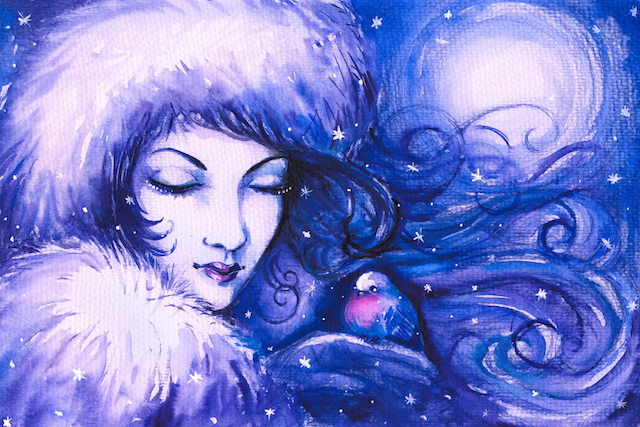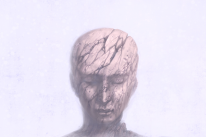
“Only through our connectedness to others can we really know and enhance the self. And only through working on the self can we begin to enhance our connectedness to others.” ~Harriet Lerner
Three decades ago, I married the man with whom I knew I would spend the rest of my life. We each had a rough childhood and had learned a lot about surviving, defending, and protecting ourselves. However, we did not know much about how to maintain a successful relationship.
We took numerous classes on communication, learned to fight fair, and filled our goodwill bank accounts with lots of positive actions. However, despite our best efforts, something was still missing.
There were times that the relationship felt smothering, and new types of problems kept arising. I got sick of saying “we” all of the time instead of “I.” Once when I was sick and slept in a different room, I was equally fascinated and worried by how much I enjoyed being by myself.
Yes, we had learned to reconnect, to repair our troubles, and to deepen our intimacy. However, we had not yet figured out the crucial step necessary for keeping your relationship healthy.
When it comes to love, we have two essential tasks. One, as most of us know, is to learn the skills and practices that allow relationships to thrive. The other lesson is less familiar to most people, but it is even more important. We must also learn how to love ourselves.
By self-love, I do not refer to the type of vanity that is fed by money, power, influence, a gym-toned body, and the admiration of others. What I mean is the kind of love that leads to self-care, not only of our physical health but also of our minds and hearts.
It’s the kind of love that creates for ourselves the time and space to develop and to use our talents. It’s the kind of love that frees us to discover and to foster our true purpose in life.
To become truly wholehearted in our loving, we have to look at when we have acted in a “half-hearted” manner and when have we been “closed-hearted.” Also, we have to examine when it is that we have responded in a “hard-hearted” way.
Our biggest challenge is to achieve the “whole” in wholehearted. In order to love anyone in a wholehearted way, we need to make ourselves whole first. We must integrate the two forces—the “me” and the “we.”
Let me be clear about the three things that are not wholeness:
- A constant state of happiness
- An ongoing state of acceptance, love, and balance
- A perpetual feeling of well-being
Wholeness truly means accepting “the whole enchilada.” The hard, the sad, the mad, the scared, and the glad are all parts of you. The gratitude and the resentment together make you whole.
Your acceptance of all the pieces of yourself makes you whole. Here are five practices that can each help us find our wholeness.
1. Spend quality time with yourself.
I once heard someone say that spending time with yourself is the greatest practice you can do, and I didn’t understand at the time what the speaker meant.
While alone, I always felt like I was “by myself.” I mistook being alone for loneliness. It took me years to discover the pleasure of walking in nature, exploring an art museum, or hanging out at a farmer’s market loving my own company as much as with another person.
2. Each day, check to make sure your self-esteem is balanced by your self-criticism.
People sometimes mistake self-love for self-indulgence. Challenging myself when I am not living up to my own standards is important, but it must be done with compassion. Learning to love yourself despite your imperfections allows you to accept other people’s imperfections.
3. Find a practice that centers you.
Sitting in a lotus position and concentrating on breathing allows some people to find focus; there are also other practices like Zen meditation, walking meditation, Vipanassa meditation, and many more.
In addition, there are methods of centering that are just as powerful for self-reflection; dance, art, writing, and prayer are just a few examples. What they all have in common is that we can use them to check in.
4. Take an inventory of where you are right now. Explore it in your mind.
Body: Am I satisfied with the ways I nourish my body? How can I make even better choices? Examine your nutrition, exercise for strength, flexibility, endurance, and cardiac wellness as well as all of the other kinds of self-care you can practice.
Mind: Am I feeling fed, challenged, expanded, and interested? Am I growing?
Spirit: Am I satisfied with the definition I have for spirit? How can I get more in touch my spirit? Is there a place within me where I can find peacefulness, wisdom, and guidance?
Emotional: How am I coping with my current challenges? Is there a flow of different feelings, or do I find myself stuck on one emotion? Do I feel balanced?
Social: How am I connected with the people in my life (family, friends, partner, coworkers)? What’s working, and where do I want to make changes?
5. Develop a daily gratitude practice and begin by showing yourself appreciation.
Ask yourself about the victories you have had during the week. Acknowledge when you did something that was brave. Thank yourself for taking the time to feel gratitude.
As you explore these five techniques, you might discover others. You will find you already have wholeness inside; you just have to find the keys to open the door.
When we feel good about ourselves, we’re more likely to feel generous toward others; it’s a symbiotic relationship. We feel grounded and centered enough to take risks and to reach out to others. We feel safe by acknowledging our shortcomings and forgiving ourselves, so we are able to open up to our partners wholeheartedly.
About Linda Carroll
Linda Carroll is the author of Love Skills and Love Cycles. While she has worked as a therapist and couple’s coach for over three decades and has acquired numerous certificates and degrees along the way, she says that her own thirty-five-year marriage is the primary source of her knowledge when it comes to the cycles of love. Visit her online at lindaacarroll.com or lindacarrollofficial on instagram.













 Though I run this site, it is not mine. It's ours. It's not about me. It's about us. Your stories and your wisdom are just as meaningful as mine.
Though I run this site, it is not mine. It's ours. It's not about me. It's about us. Your stories and your wisdom are just as meaningful as mine.
Good lord Linda, this is so well stated and so true. It is like reading my story, thank you for the confirmation.
Kyla
Good one Linda. I especially talk about gratitude to my own followers and clients, as this over time will produce a pretty different chemical state in the mind. 🙂
Thank you Linda. I have struggled to care for myself in my marriage because often my self-care is interpreted by my wife as selfishness. I know, though, that I can’t wholeheartedly love her unless I love myself first.
Beautiful post!!! Thank you for sharing this great and important message! Well written 🙂